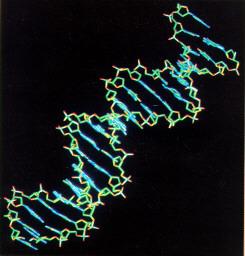Genetic testing has become a fashion in Italy, with thousands paying for unnecessary and unreliable analyses, according to a new report.
The joint study by the Italian Society of Medical Genetics (SIGU) and the CSS-Mendel Institute reported a 30% rise in the number of genetic tests carried out between 2004 and 2007.
This indicates people are carrying out unnecessary analyses and, more worryingly, fuelling a demand for testing centres that are unreliable, said CSS-Mendel Institute Scientific Director Bruno Dallapiccola.
The number of genetic testing centres ''is seeing a continuous and unjustified rise'', he said.
The study looked at 388 laboratories, just 108 of which were accredited.
''Just 28% of laboratories are certified in accordance with international norms, while only 35% partake in external quality controls,'' Dallapiccola explained.
''Furthermore, some 47% of structures offering chromosome analyses carry out fewer than 1,000 tests a year, which is considered the minimum threshold for quality standards''.
The study also found that the vast majority of those paying for tests were not following through with expert consultations, which are vital for correctly interpreting results.
Of the 560,000 tests carried out in 2007, just 13% of these subjects took their results to doctors afterwards.
Furthermore, even those that do receive medical advice are often let down by a poor understanding of genetics on the part of doctors, the study found.
Dallapiccola urged doctors to ''increase their preparation and ensure that at least the 1,000 most common rare illnesses are well understood, so as not to prescribe genetic tests that turn out to be useless''.
But even more worrying was the number of people carrying out tests independently of medical advice, he said.
He warned against ordering tests online, stressing that ''many centres offers genetic testing packages that are entirely unreliable''.
The most dependable tests are those that assess a single disease stemming from the mutation of one gene only, he said. Analyses for complex illnesses such as diabetes, hypertension or osteoporosis cannot be trusted.
''For many such diseases, environment plays a major role and a genetic predisposition does not mean that the individual will definitely fall ill,'' he concluded.










